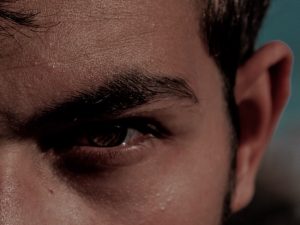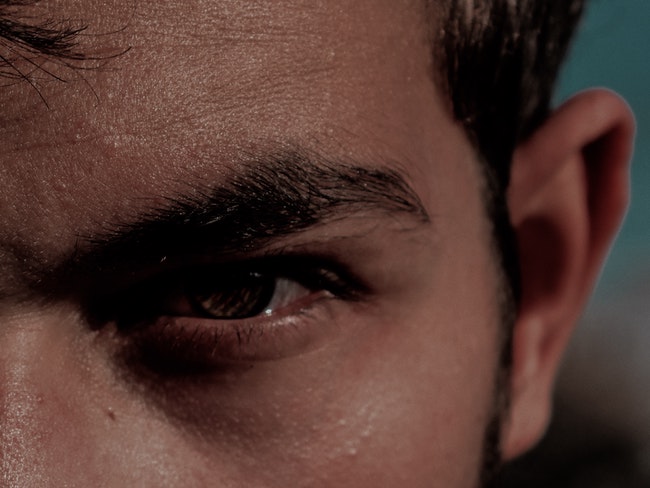
Esav. He represents so much evil. We know him as the hunter, the ruthless marauder, murderer of Nimrod and stalker of Yaakov. Yet, believe it or not, he had some saving grace. He is even considered a paradigm of virtuous character at least in one aspect of his life honoring parents. The Torah tells us that Yitzchak loved Esav. And Esav loved him back. He respected his father and served him faithfully. In fact, the Medrash and Zohar talk favorably about the power of Esav’s kibud av, honor of his father. They even deem it greater than that of his brother Yaakov’s. And so Yitzchak requested Esav to “go out to the field and hunt game for me, then make me delicacies such as I love, and I will eat, so that my soul may bless you before I die” (Genesis 27:3-4). Yitzchak wanted to confer the blessings to him. Esav won his father’s regard. And even when Esav found out that his brother, Yaakov beat him to the blessings, he did not yell at his father, in the method of modern filial impugnation, “How did you let him do that?!” All he did was “cry out an exceedingly great and bitter cry, and said to his father, “Bless me too, Father!” (ibid v.34). Yitzchak finds some remaining blessing to bestow upon his older son, but the grudge does not evaporate. What troubles me is not the anger of defeat or the desire for revenge, rather the way Esav expressed it. “Now Esau harbored hatred toward Jacob because of the blessing with which his father had blessed him; and Esau thought, “May the days of mourning for my father draw near, then I will kill my brother Jacob.”
“May the days of mourning for my father draw near” Think about it. How did the love for a father turn into the eager anticipation of his death? The seventh grade class of the posh Harrington Boy’s School, nestled in the luxurious rolling hills of suburbia, was teeming with excitement. The winter had begun, and they were rapidly approaching the beginning of the holiday season. The children had been talking about their wishes and expectations for holiday presents and were telling the class what they were going to get.
Johnny had been promised that if he finished his piano lessons, he’d get a new 800-megahertz computer. Arthur had asked for a real drum set and was promised it on the condition he gets grades of 100 on two consecutive math tests.
Billy had not been so lucky. He had begged his dad for a Harley-Davidson motorcycle, to which his father replied, “Over my dead body!” He settled. If he would write a weekly letter to his uncle in Wichita, he would get a motorized scooter.
The day came and all the kids had the chance to share their expectations with their peers.
“When I get two hundreds in a row, I’m getting a real drum set!” shouted Arthur.
“When I finish piano lessons, I’m getting the latest computer!” exclaimed Johnny. And so it went. Each child announced his goal and the prize that awaited him upon accomplishment.
Finally Billy swaggered up to the front of the class. “If I write my uncle I’m gonna get a scooter.” He quickly continued, “but that’s nothing! ‘Cause when my daddy dies, I’m getting a Harley-Davidson motorcycle!”
Passions overrule sanity. They even overtake years of love and commitment. When one is enraged, he can turn against his best friend, his closest ally, and even his own parents! Esav, who spent his first 63 years in undying adulation of his father, changed his focus in a burst of emotion. Now, instead of worrying about his father’s fare, he awaited the day of his farewell. All in anticipation of the revenge he would take on Yaakov.
When passions perverse our priorities, and obsessions skew our vision, friends become foes and alliance becomes defiance. In the quest for paranoiac revenge, everyone is an enemy even your own parents. But mostly your own self.
Dedicated lezecher nishmat our zeida Avraham Yehoshua Heshel ben Yehuda Hacohen – 7 Kislev sponsored by Miriam, Josh, Tamar & Shlomo Hauser
Copyright © 2000 by Rabbi M. Kamenetzky and Project Genesis, Inc.
If you enjoy the weekly Drasha, now you can receive the best of Drasha in book form! Purchase Parsha Parables – from the Project Genesis bookstore – Genesis Judaica – at a very special price!
The author is the Dean of the Yeshiva of South Shore.


